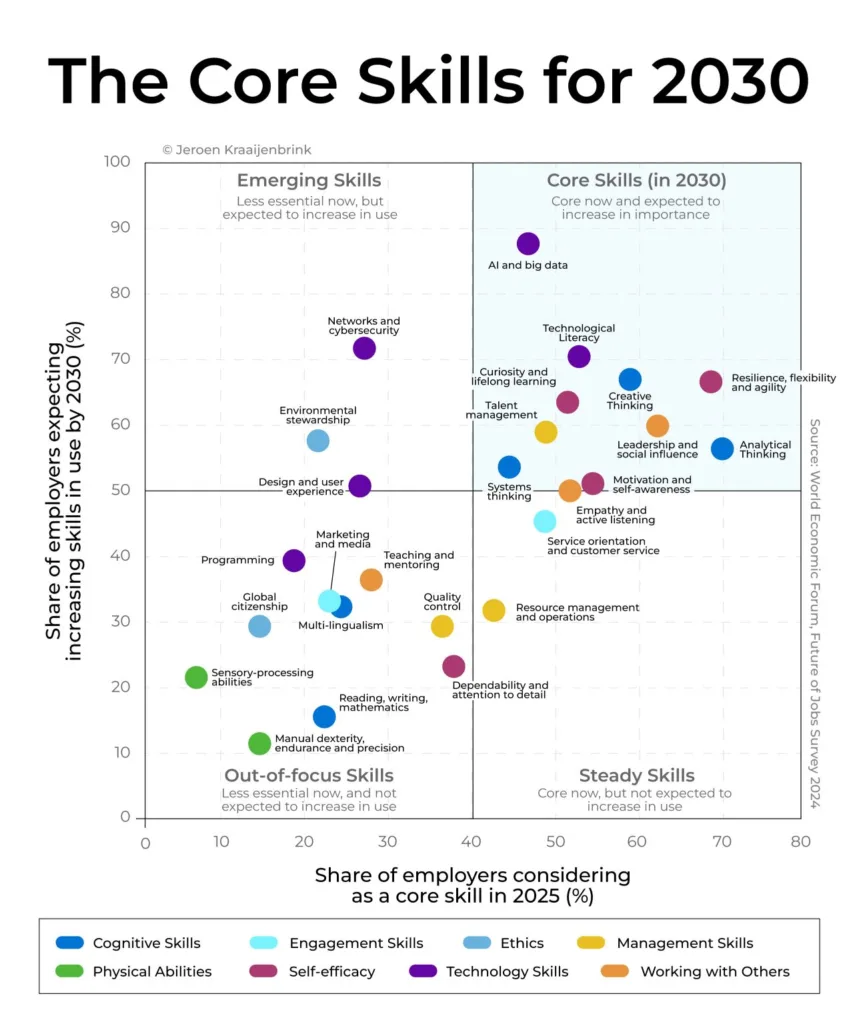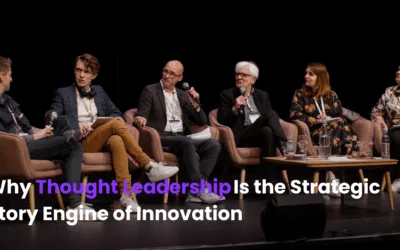Future-ready skills aren’t technical alone – they’re entrepreneurial. What we used to call “soft skills” are built on entrepreneurial thinking, are AI-agnostic and will increasingly be in-demand as we face the future or work, life and everything in-between.
In a design sprint a few months ago, we watched a group of young students – someone new to what we call “innovation” – step up and confidently challenge a long-standing assumption in the government’s process.
It wasn’t just the insight that stood out. It was how they got there.
They’d spent precious time mapping systems, questioning root causes, and rapidly testing new concepts with experts from local groups, indigenous stakeholders and local government. The tools were simple. The thinking was not.
Within what seemed like moments, they had moved from some scribbles on a page and a few post-it notes to a prototype – and something even more valuable: the confidence to lead change. For not only had this young team of innovators inspired each other – they motivated every person they contacted.
This is what learning to lead looks like in 2025. And it looks a lot like what the World Economic Forum predicts we’ll need most by 2030.
In its recent report on future skills, the WEF highlights a powerful shift (see link in comments). The most essential capabilities for the next generation of work aren’t purely technical – they’re strategic, adaptive, and deeply human. The skills that sit in the top-right quadrant – those both critical today and rising in importance – include:
- Analytical thinking
- Resilience and agility
- Leadership and social influence
- Motivation and self-awareness
- Systems thinking
- Curiosity and lifelong learning
There is one key here – these are not niche abilities. They’re the skillset of the innovator.

Entrepreneurship as the Training Ground
At Disruptors Co, we often say that entrepreneurship – especially the fast-paced, co-designed kind – isn’t just about launching new ventures. It’s about training for the future of leadership.
Accelerator programs, innovation labs, and design sprints create high-pressure, high-opportunity environments where people build these skills by necessity. Not in theory. In real time.
In these contexts, you don’t just brainstorm – you have to validate and test. You don’t just plan – you have to adapt as you go – taking in feedback, coaching, insight, creativity and data. You don’t just present your ideas – you have to influence, negotiate, and navigate uncertainty, arriving at win-win-win outcomes as quickly as possible.
That’s not a simulation of leadership. That is leadership.
Entrepreneurial Thinking Isn’t Just for Startups
This kind of learning doesn’t belong only in the startup world. We see it in government, in enterprise teams, in frontline services, in policy labs. We see it in design sprints with corporate teams and in hackathons with new teams.
One of the most powerful aspects of these future skills is that they scale across roles and contexts. A policy pioneer reimagining regulatory systems. A marketing team redesigning customer journeys. A health agency prototyping AI-powered service models.
What links them isn’t a sector. It’s a mindset – and a set of skills we can actively develop, not passively hope for.
Innovation on Purpose
If we want leaders prepared for 2030, we need more than training courses. We need experiences that build the muscle of innovation. Environments where ambiguity is the curriculum. And where outcomes aren’t just deliverables – but new ways of thinking, working, launching and iterating.
This is what we call innovation on purpose.
It’s why we design our programs the way we do – not to impress with jargon, but to equip people to ask better questions, navigate complexity, and build solutions that last.
The future won’t wait for comfort or perfection. But it will reward those who know how to think clearly, adapt quickly, and act with intention.
And the good news? Those skills aren’t futuristic. They’re already being practiced – in sprints, in labs, and in the moments when people step forward to challenge the way things have always been.



